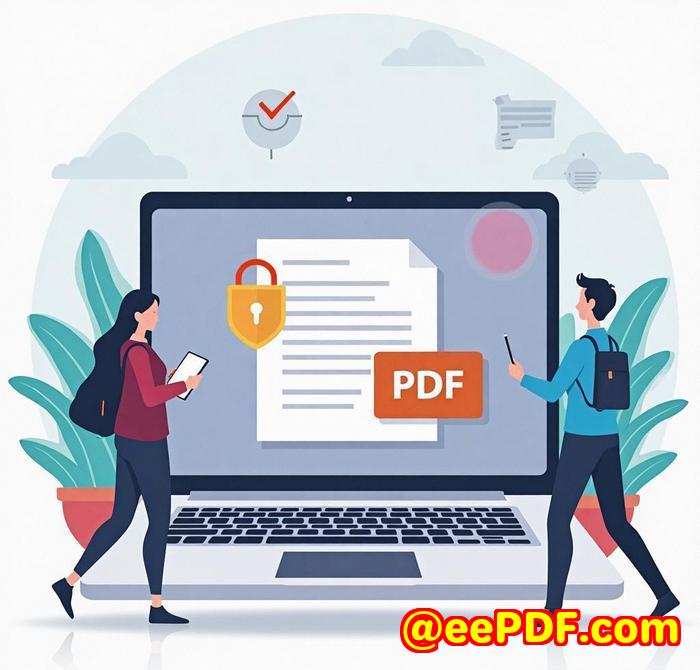Redacting Legal PDFs on Linux Servers with Java PDF Toolkit: A Real-World Lifesaver
Meta Description:
Need to redact sensitive data from PDFs on Linux? Discover how Java PDF Toolkit makes it easy with a fast, command-line solution.

Every Friday afternoon, I used to face the same stressful ritualscrubbing sensitive client data from dozens of legal PDFs before sending them to our external counsel. It wasn't just time-consuming; it was nerve-wracking. A single missed email address or ID number could lead to a breach. Most redaction tools were built for Windows, slow, or didn't handle batch files well. And since our legal department runs entirely on Linux servers, we needed something cross-platform, efficient, and reliable. That's when I discovered VeryUtils Java PDF Toolkit (jpdfkit).
I initially stumbled upon VeryUtils Java PDF Toolkit while researching command-line PDF tools that support automated redaction. What drew me in was its cross-platform nature and the fact that it runs as a .jar filemaking it ideal for Linux server environments. The toolkit supports a wide range of PDF manipulation features, including redaction, watermarking, encryption, rotation, splitting, merging, and more.
What's especially powerful is its command-line interface. There's no need for a bulky GUI or a Windows machine. You can easily integrate it into shell scripts or server cron jobs, making it perfect for back-end automation or DevOps pipelines. I set it up to automatically redact all uploaded documents in our intake folderand suddenly, Friday afternoons didn't look so bleak anymore.
Key Features I Rely On
1. Robust Redaction Capabilities
Using the redaction command, I can strip out sensitive information like email addresses, Social Security numbers, or names directly from the PDF content layer. I can define the text patterns I want to remove and specify which pages to target. It doesn't just hide the data visuallyit removes it completely from the file, which is essential for legal compliance.
2. Linux-Friendly Command-Line Support
As someone working exclusively with Linux servers, the fact that this toolkit runs flawlessly without needing to install a GUI is a huge win. I simply use a shell script to pass batch redaction commands to jpdfkit. It's light, fast, and never crashes, even with hundreds of documents queued.
3. Versatile PDF Manipulation
Redaction was my primary goal, but I've since expanded our use of jpdfkit to include merging case files, watermarking internal memos, and encrypting court documents before emailing them. The fact that it handles all of these tasks with a consistent syntax makes it one of the most valuable tools in our workflow.
Real Results in Real-Time
Before switching to jpdfkit, I spent 34 hours each week manually redacting documents. Now, with a script that runs hourly, the process is fully automated. One time, I discovered that a competitor's tool (which only visually masks text) left sensitive data intact in the file's metadatasomething jpdfkit doesn't allow. That was a wake-up call.
Who Should Use This?
If you're a legal professional, compliance officer, system administrator, or developer handling confidential PDFs on Linux, this tool is made for you. It's especially ideal for environments where command-line control and automation are keysuch as legal departments, document processing centers, or SaaS products that work with PDFs.
If you're constantly redacting sensitive information, splitting case files, or encrypting contracts, VeryUtils Java PDF Toolkit solves real problems in a practical way. I'd highly recommend this to anyone working with legal or confidential PDFs, especially in a Linux environment.
Start your free trial and simplify your workflow today:
https://veryutils.com/java-pdf-toolkit-jpdfkit
Custom Development Services by VeryUtils
VeryUtils offers tailored software development for advanced PDF handling across Linux, Windows, macOS, and cloud environments. Whether you're looking for a secure PDF print monitoring system, barcode generation tools, OCR and layout analysis, or custom virtual printer drivers, their team can deliver. VeryUtils supports technologies like Python, PHP, Java, C++, .NET, and HTML5, with deep expertise in PDF manipulation, API interception, and digital signatures.
They also specialize in backend solutions for automated document conversion, cloud PDF editing, and DRM-protected workflows. If your project needs something uniquelike intercepting system print jobs or deploying OCR table extraction at scaleVeryUtils is ready to help.
Discuss your custom requirements here: http://support.verypdf.com/
FAQ
Q1: Does Java PDF Toolkit work on Linux servers without a GUI?
Yes, it's a command-line tool packaged as a .jar file, so it runs smoothly on any headless Linux server.
Q2: Is the redacted content completely removed from the PDF?
Absolutely. Unlike some tools that just hide content, jpdfkit fully deletes the specified text from the document's structure.
Q3: Can I batch-process multiple PDF files?
Yes, you can use shell scripts to loop through files and apply redaction, watermarking, or other operations in bulk.
Q4: Does it support PDF encryption and password protection?
Yes, you can easily apply user and owner passwords to secure your documents.
Q5: Is there a GUI version available?
No, the current version is command-line only, but that's what makes it lightweight and server-friendly.
Tags
-
PDF redaction on Linux
-
Java PDF command-line tool
-
Secure legal PDF processing
-
VeryUtils jpdfkit
-
Batch PDF manipulation tool